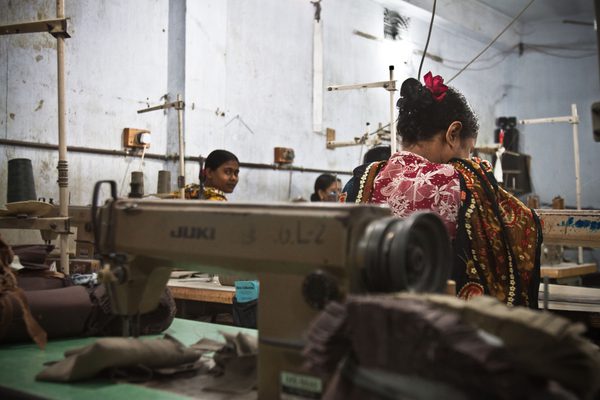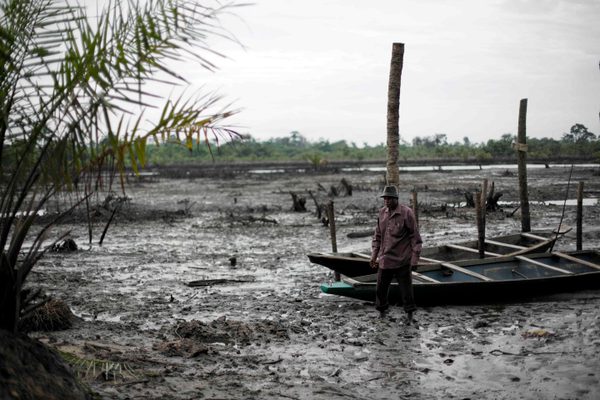Anatomy of a business and human rights treaty?
25 June 2015

In July an Intergovernmental Working Group will convene at the United Nations in Geneva to begin deliberations about a proposed treaty on business and human rights. But what kind of treaty?
The UN Human Rights Council decided in June 2014 to initiate a process to “elaborate an international legally binding instrument to regulate, in international human rights law, the activities of transnational corporations and other business enterprises.” Sponsored by Ecuador and South Africa, the resolution was adopted by a plurality vote of 20 States in favor, 14 opposed, and 13 abstaining.
Why the impetus for a treaty? Current international law imposes certain human rights obligations on business, but the coverage is incomplete, indirect and largely ineffective. International human rights law obligates States to protect human rights from infringement by business, but the legal obligations relating to business are vague and general. International labor law and international criminal law, in certain situations, impose limited specific obligations on business, but their coverage is narrow. Most applicable treaties are not universally ratified, and none grants victims effective remedies against companies. The lack of access to an effective remedy has led a global coalition of NGOs to advocate for a new, general treaty on business and human rights.
The Intergovernmental Working Group (“IGWG”) negotiators will begin meeting even as the UN Human Rights Council continues to support work to implement the UN Guiding Principles on Business and Human Rights – which reinforce the State duty to protect individuals from human rights abuses by business entities, while reminding businesses of their responsibility to respect human rights, as part of their social license to operate.
The IGWG will need to address the substance of a treaty as well as its framework – how treaty commitments are monitored and enforced. There is a wide range of possibilities for the form and content of a treaty. They range from a comparatively weak treaty that would simply mandate public reporting by large companies, to a strong treaty with civil and criminal remedies enforceable in national and international courts.
In anticipation of the IGWG, we prepared a “White Paper” for the American Bar Association Center for Human Rights, and the Law Society of England and Wales, which outlines a wide range of options for a treaty on business and human rights. The paper is presented in the belief that an informed negotiating process deserves, at the outset, a basic awareness of the main options and issues.
The many options discussed in the White Paper are too numerous to mention them all in this post. One section addresses options for national action – commitments that States may make to spur their own businesses to respect human rights, at home and abroad. For example, a treaty might focus on disclosure, transparency and reporting. It might require corporations to report publicly on their human rights policies, risks, outcomes and indicators. It might also focus on State action – for example, by requiring States to develop national action plans to implement the UN Guiding Principles.
A treaty might also focus on access to remedy, providing for civil damages suits, specifying certain internationally recognized crimes against human rights, and requiring States to prosecute companies and responsible individuals within companies, and to cooperate with each other in doing so. The form of such a treaty could be modeled in part on existing OECD and UN treaties against corruption.
The IGWG may also wish to consider international enforcement and monitoring. At a minimal level, a treaty might require States to report to a body of international experts on progress and obstacles in implementing their treaty obligations. As with current human rights treaties, the process might allow civil society to submit “shadow reports” and authorize the expert body to dialogue with States in public hearings and to publish observations. A treaty might also authorize individual complaints to a treaty body against a State’s failure to meet its commitments.
States may also consider whether, in addition, there is need for international enforcement mechanisms with more “teeth”– giving individuals the right to bring cases before international tribunals or arbitrators, or establishing international criminal jurisdiction.
The IGWG might also choose to focus on the relation of the treaty to specific bodies of national and international law, such as trade and investment treaties. Or it might address a specific sector or industry, or business involvement in certain kinds of human rights abuses.
Whatever the form of a treaty, the IGWG may wish to address key, cross-cutting issues of substance, several of which are briefly outlined in the White Paper. Among them are the following:
- What companies will the treaty regulate – only transnational or “all” companies?
- What range of human rights will the treaty cover? (The answer may depend on the kinds of duties it imposes.)
- Will the treaty authorize or mandate States to exercise extraterritorial jurisdiction over their companies? (International law allows States to engage in reasonable exercises of jurisdiction over their corporations in other States, and there are examples of requirements that parents report on the human rights impacts of subsidiaries and other entities in their enterprise worldwide.)
- Will the treaty address the issue of separate legal personality? (States typically apply a “corporate veil” to shield parents from legal liability for wrongs committed by subsidiaries, with some exceptions.)
- Will the treaty impose direct obligations on business, or only on States?
- Will the treaty address the responsibilities of lawyers and other business advisors?
Both diplomatically and technically, the Intergovernmental Working Group faces a daunting task. The divided vote by which it was launched, and the range and complexity of issues with which it may grapple, call for a broadly inclusive process of thoughtful deliberation. As that process moves forward, we hope the White Paper will serve as a useful resource for States, civil society, the business community and other stakeholders.




